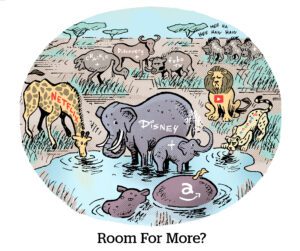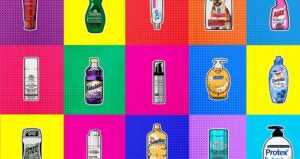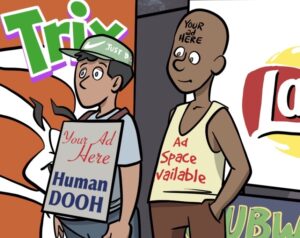Here’s today’s AdExchanger.com news round-up… Want it by email? Sign up here.
Google Bites Back
Google isn’t done refuting Adalytics’ accusations that YouTube targets ads to kids watching YouTube.
On Thursday, it released an analysis of Adalytics’ report, highlighting how advertising works on YouTube’s made-for-kids (MFK) content to prove it is not, in fact, serving personalized ads to kids.
The first mistake Adalytics made, argues Dan Taylor, Google’s VP of global ads, was limiting its research to impressions served on MFK channels rather than on individual videos. A YouTube creator with an MFK channel can designate individual videos within that channel as non-MFK. So personalized ads served on an MFK channel aren’t necessarily going to an MFK video.
Adalytics’ second faux-pas – according to Google – was classifying impressions on an MFK channel as personalized ads. But Google insists that any ads served on an MFK video are targeted using only contextual signals (which can include the viewer’s current search), never personal information (such as age).
That said, Google has found “no instance [of] personalized ads on MFK content,” Taylor writes. Plus, he adds, “Adalytics continues to ignore our offer to meet and explain how our systems work.”
A Matter Of Trust
In other Google news, a few of its antitrust lawsuits are reaching major milestones.
Google reached a tentative settlement agreement in a suit accusing the company of monopolizing app distribution on Android mobile devices, The Wall Street Journal reports.
The terms of the settlement have not been made public, so it’s unclear what concessions, if any, Google had to make. For example, Google already allows third-party app stores to run on Android. Both sides of the case, which was brought by three dozen US states, will release more information within the next 30 days.
However, the Google Play store isn’t out of the woods. It will go to court in November for a similar case brought by Match Group and Epic Games.
Plus, Google has another long-anticipated legal fight against the US federal government that will go to trial on Tuesday, The New York Times reports.
The Justice Department will attempt to prove that Google harmed its competitors by forging exclusive agreements with mobile platforms to make Google their default search engine. The trial could result in parts of Google’s business being broken up. But, in similar trials, judges have typically only ruled against tech companies when their practices were found to hurt consumers, rather than competitors.
UnChartered Waters
Speaking of lawsuits, Charter Communications got slapped with a class-action suit over last week’s blackout of over 25 Disney-owned networks, The Hollywood Reporter reports. The lawsuit, filed by subscribers in Florida federal court, alleges that Charter charged customers for services they didn’t receive after it declined Disney’s offer to extend carriage negotiations.
A full week later, Charter customers still aren’t getting Disney-owned channels.
Charter has offered a $15 rebate, but only after a call to customer service. So, naturally, many customers paid the entirety of their cable bill “despite not being allotted access to all the advertised services,” the complaint reads. “Charter knew the debts they sought to collect were not legitimate because [Charter] had actual knowledge they were not providing the contractually obligated services they were required to supply,” according to the suit.
As if it isn’t already hard enough being a cable company these days.
But Wait, There’s More!
Content production has almost completely shut down at Warner Bros. Discovery because of the ongoing strikes. [Variety]
Microsoft offers legal aid to customers facing lawsuits for copyright infringement stemming from their use of the company’s generative AI products. [Bloomberg]
YouTube is removing some ad controls for creators. [The Verge]
Meta adds more features to Threads in a push to keep users on the app. [Marketing Brew]
SiriusXM creates a brand safety and suitability verification tool for podcast advertisers. [Digiday]
Mozilla Foundation says automobile manufacturers are among the worst offenders when it comes to gathering and protecting consumer data. [Ars Technica]
Amazon Web Services launches a monetization solution for media and entertainment companies. [blog]
You’re Hired!
Advertiser Perceptions names Jacqueline Baranov as VP of consulting. [release]
Carbon management platform Cedara hires Ariel Sande as VP of global client partnerships. [release]
















